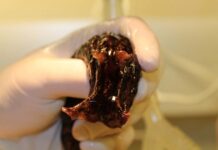Feedback, New Scientist’s playful column, often finds itself bemused by developments in science and technology. This week is no exception, starting with a robot programmed to mimic the antics of Turkish ice cream vendors — a seemingly unnecessary but fascinating exploration of playful deception.
The Turkish Ice Cream Robot
Turkish ice cream vendors are known for their elaborate tricks, like snatching the cone away just as the customer reaches for it. Intrigued by this unique form of customer interaction, engineers have created a robot capable of replicating these routines. The robot uses a robotic arm to execute five different tricks, including “bouncing” the cone, dodging the customer’s hand, and performing a circular “dance” that puts the cone just out of reach.
Testing revealed that while these tricks increased enjoyment, engagement, and the perception of the robot’s competence, they also significantly decreased trust, perceived safety, and self-competence. In essence, playful deception can be entertaining but comes at the cost of predictability and trust. The authors rightly point out that such a design would be unacceptable for safety-critical applications.
Apposite Acronyms: A Case of SCAMP and MORDOR
Feedback also received a deluge of suggestions for the best and worst scientific acronyms. One notable example is the “Solway Coast And Marine Project” (SCAMP), a conservation effort in the UK. Reader Stuart McGlashan humorously suggested a slight modification to improve the acronym’s relevance to the project’s focus on “restoration of sea life.”
On a different continent, Jamie Pittock and Jennie Mallela chose the name “Management Of Rivers Discharging into Ocean Realms” (MORDOR) for their project studying rivers flowing into the Indian Ocean. They received an application from a Mr Bilbo Baggins from the Shire – a humorous event that underscores the whimsical nature of project names and the unexpected responses they can elicit.
Shakespeare’s Astronomical Errors
Reader James Fradgley brought to light another instance of scientific imprecision, this time within the works of William Shakespeare. In Julius Caesar, Caesar boasts about being “constant as the northern star.” However, James points out that at the time of Caesar’s assassination in 44 BC, Polaris was not the northern star, but rather Kochab was.
Furthermore, Polaris is a Cepheid variable, meaning its brightness fluctuates, contradicting the idea of a constant star. While Feedback is willing to forgive Shakespeare’s errors, it highlights the surprising intersection of literature and science, and how even renowned figures can stumble when venturing beyond their expertise.
Feedback welcomes submissions of amusing or perplexing science and technology news.



























